Perinatal mood and anxiety disorders – don’t let them steal your joy!
This post may contain affiliate links that I may receive a commission from if you click & buy. In addition, the information on this site is NOT intended to be medical advice. See my full policy for more information.
Becoming a new mommy brings a whirlwind of emotions and hormones. Sometimes, these emotions linger on, getting stronger and making it hard to find the joy in motherhood. These are typically known as perinatal mood and anxiety disorders.
Making sure you have SUPPORT and SOMEONE to talk to about these new changes is beyond important for all new moms. I truly can’t express this enough.
After having my son, I didn’t have many people sharing their new mommy experiences with me from the mental health aspect of things. Everyone wanted to share the cutesy baby stories (which I love and appreciate them for), but what we need to get more comfortable talking about is the harder days.
It might feel embarrassing to admit you’re dealing with postpartum mood disorders — bring on the mom guilt or just feels really isolating — but this is why it’s important for us moms to SUPPORT ONE ANOTHER!
I want you to know if you’re reading this, whether you’ve overcome your struggles, are in the peak of them or barely beginning to come to terms with the emotions you’re feeling – this is a JUDGEMENT FREE PLACE & my email is ALWAYS open if you need a place to talk.
I also have a 100% FREE FACEBOOK GROUP where moms can find support & resources 24/7. If you’d like to join, send your request here!
Understanding Postpartum Anxiety & Depression
The term Postpartum Mood Disorders is simply used to classify a group of maternal mental health disorders mom’s can experience at some point during the postpartum period (and sometimes during pregnancy!).
Postpartum Depression is classified by the depression experienced by new moms after giving birth, experienced by about 15% of new moms.
Usually, the onset of symptoms can occur as early as a few days after having your baby up to a full year later!
Postpartum Anxiety, also known as the hidden disorder, due to being so similar to postpartum depression. It’s classified by similar experiences of postpartum depression with a heightened level of anxiety and can involve other physical symptoms.
Some women (about 25-30% of women) begin to experience postpartum anxiety during their pregnancy!
But prior to experiencing any of those postpartum mood disorders, you could be one of the few that just falls into the ‘experiencing baby blues’ category!
For me, I began to get anxiety around breastfeeding. We had a rough start which caused a lot of mixed feelings and stress. If you’re struggling with breastfeeding and finding it’s causing you issues, please seek help!
You CAN work through these feelings with the right tools, for instance, this Postpartum Workbook is an excellent resource I recommend ALL new & expecting moms pick up for themselves.
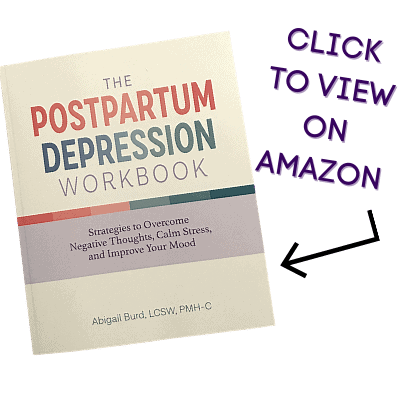
The Postpartum Workbook was created by Abby Burd (a licensed perinatal therapist who you’ll read more about down below) as an AFFORDABLE way for moms to get access to her powerful strategies and compassionate support that she uses through therapy to help moms overcome postpartum depression.
If you’re not feeling like you need to consider therapies at this point, the workbook is an excellent place to start!
What are the baby blues?
The baby blues occur about 4-5 days after birth, is known as the least severe form of postpartum depression.
This is because although these heightened feelings of sadness, irritability, restlessness, insomnia, lack of ability to focus or concentrate, and mood swings come on suddenly, they tend to go away about 2 weeks after birth.
If you find you’re still dealing with these symptoms past that 2-week mark, you could be dealing with postpartum depression.
Recommended Read >>> Why Moms Need Self Care
What is the difference between postpartum anxiety & postpartum depression?
The key difference I’ve noticed between postpartum depression and postpartum anxiety is that with postpartum anxiety – it seems to be more ‘worry-driven’.
Meaning as a new mom, you’re hyperfocused on worrying about things that are more irrational.
But despite this difference, both postpartum depression and postpartum anxiety share many of the same signs and symptoms which we’ll list out below.
Postpartum Anxiety Signs:
- Insomnia (difficulty sleeping)
- Rapid heartbeat/Panic Attacks
- Uncontrollable worry thoughts
- Difficulty focusing/concentrating
- Racing thoughts
- Hot flashes/Nausea
- Dizziness

Postpartum Depression Signs:
- An overwhelming feeling of sadness
- Insomnia
- Lack of appetite
- Feelings of worthlessness (Mom Guilt)
- Not feeling love or connection with your baby
- Thoughts of wanting to harm yourself or your baby
How to treat postpartum depression & postpartum anxiety?
If you are experiencing any of the signs and symptoms above, please get help — call your doctor, talk to a psychologist, ask a friend to come over and watch your baby so you can catch a breath of fresh air, but please don’t suffer in silence.
Treatment for most of the postpartum mood disorders typically comes down to therapy or medication.
Between working with your health care provider and/or therapist, you should be able to develop ways to help you cope and be STRONGER than these feelings you’re experiencing.
It took me a while to come to terms that I should talk to someone about my feelings. It felt very isolating since I didn’t have many mom friends at the time and my husband (who is amazing by the way) just didn’t understand what I was going through.
I found a therapist who I worked with for a couple of months and she helped me to pin-point specific trigger points as to when my emotions became heightened. All while helping me develop some coping strategies to overcome them.
I was very against medication because I was breastfeeding and my symptoms weren’t bad enough to warrant them but had I not talked to someone when I did, I could definitely see how these feelings could have worsened.
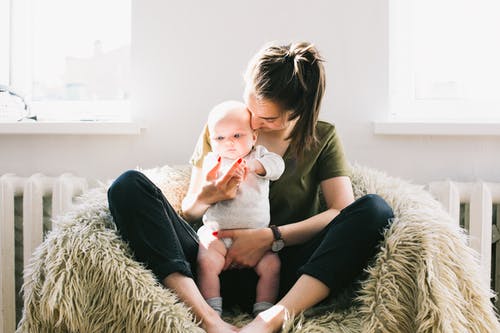
Other Postpartum Mood Disorders all Moms should be aware of:
Postpartum Obsessive-Compulsive Disorder Signs & Symptoms:
Postpartum obsessive-compulsive disorder is similar to general obsessive-compulsive disorder, but the thoughts and feelings are usually related to baby in some way.
Signs & symptoms:
- Repetitive Intrusive Thoughts.
- Compulsive actions to try and reduce the fear of something related to baby (ex. washing laundry over and over again in fear it’s too dirty for baby).
- Fear of being alone with your infant.
- Fear of harming your infant.
- Being able to recognize these intrusive thoughts, but not contain them.
Postpartum Post-traumatic Stress Disorder Signs & Symptoms:
Postpartum post-traumatic stress disorder is something approximately 3-16% of new moms will experience. It’s caused by trauma or perceived trauma during pregnancy, childbirth or during the postpartum period.
Signs & symptoms:
- Intrusive thoughts correlated to the traumatic event.
- Triggered by events that remind mom of the trauma.
- Insomnia & difficulty sleeping.
- Anxiety or panic attacks.
- Constantly on edge or fearful for your baby.
- Feeling a sense of detachment or disconnect from your baby.
Postpartum Psychosis Signs & Symptoms:
Postpartum psychosis is the most severe of all postpartum mood disorders. It’s also the rarest. It’s classified by having severe delusional thoughts or beliefs that feel very real to mom. If you believe you have postpartum psychosis, you should seek medical help immediately!
You can call 1-800-662-HELP (4357) (the Substance Abuse and Mental Health Services Administration’s National Helpline – it is a free 24/7 confidential information service for anyone who may be struggling).
Signs & Symptoms:
- Delusional thoughts.
- Insomnia (difficulty or inability to sleep).
- Paranoia.
- Constant and severe mood swings.
- Feeling angry and irritated.
- Hallucinations.
The importance of seeking out help when suffering from postpartum mood disorders.
It’s important to understand when you’re going through this stage in your life that it could be hard for others to show support.
What I mean is that your partner will likely have a hard time understanding or showing empathy since they aren’t the ones going through it.
You may not have family or friends around to help.
This is why it’s SO important to seek help the minute you contemplate the idea of needing it.

You should not have to suffer alone in silence. Your baby shouldn’t have to be on the reciprocating end of these disorders.
The kicker is, in the heat of dealing with a perinatal mood and anxiety disorder, it can be really hard to find the courage to seek help.
What are some ways to cope with and deal with perinatal mood and anxiety disorders?
Sadly, there isn’t a magical cure for postpartum mood disorders, but there are ways to help you cope and recover from these seriously life-sucking mood disorders!
The most important –> Seek professional help if you need it, seriously.
- Stay active. Exercising (once you have medical clearance). Maintaining a balanced healthy lifestyle is one of the best things you can do for your mind and body.
- Schedule yourself ‘breaks‘ to get some self-care.
- Get extra sleep. Sneaking in an extra nap or 2 throughout the day can be surprisingly refreshing!
- Identify your triggers. Does breastfeeding give you anxiety? Do you feel overwhelmed when your baby cries? Identify what sets you off and work up ways to overcome them.
- Attend free postpartum support groups. Look online for free postpartum mood disorder support groups near your area & make it a point to attend.
- Use journaling to help diffuse. I really love to write. I find it’s a free space I can use to write all my thoughts. It helps get things off my chest and help me unwind.
- Invest in activities that make you happy. Feeling frustrated you gave up your music lessons after becoming a mom? Remember, it’s still important you embrace the person you are as a whole, not just ‘being a mom’.
- Get a support system together. This is something I encourage all expecting moms to do in the event things get tough. Make a list of ALL the people you can confide in, talk to openly and trust. Having a support system is key to a positive postpartum recovery.
Resources for moms experiencing Perinatal Mood and Anxiety Disorders:
I really hope you found this post all about postpartum mood disorders helpful!
If you did, please take the time to share it with an expecting mom or mom in the trenches. You never know who you could be helping by sharing this information.
Read more postpartum articles here:
13 Practical Ways to Fix An Unhappy Marriage After Baby
Cool Moms Don’t Sleep: 10 Tips for Exhausted New Moms
Best Leakproof Underwear For Moms (that’s NOT a diaper)
How To Grocery Shop With A Newborn (because we all know it’s insanely nerve-wracking)
Postpartum Body Image Struggles: 15 Confidence Boosting Tips
Freezer Meals for Postpartum: A Must for New Moms
Incredible Benefits of Taking Collagen While Breastfeeding & Postpartum
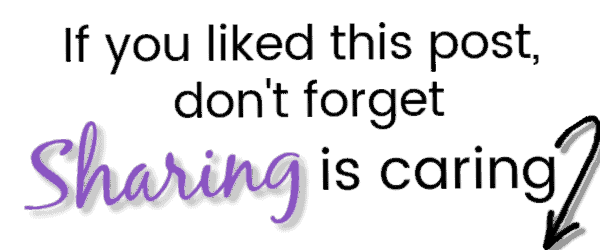
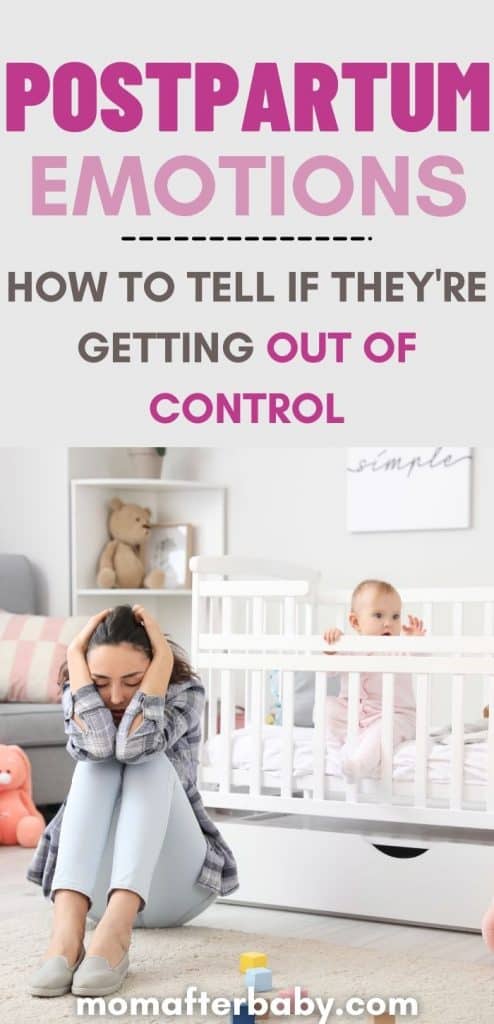
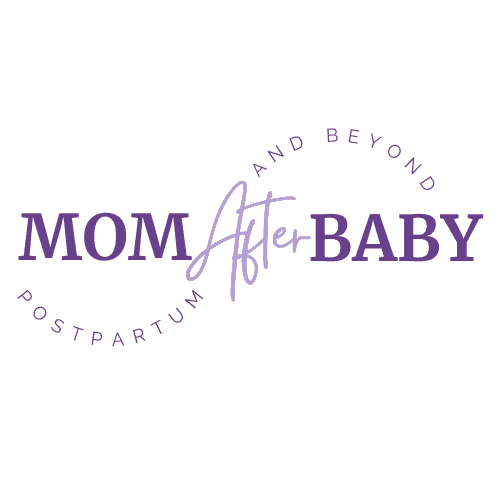
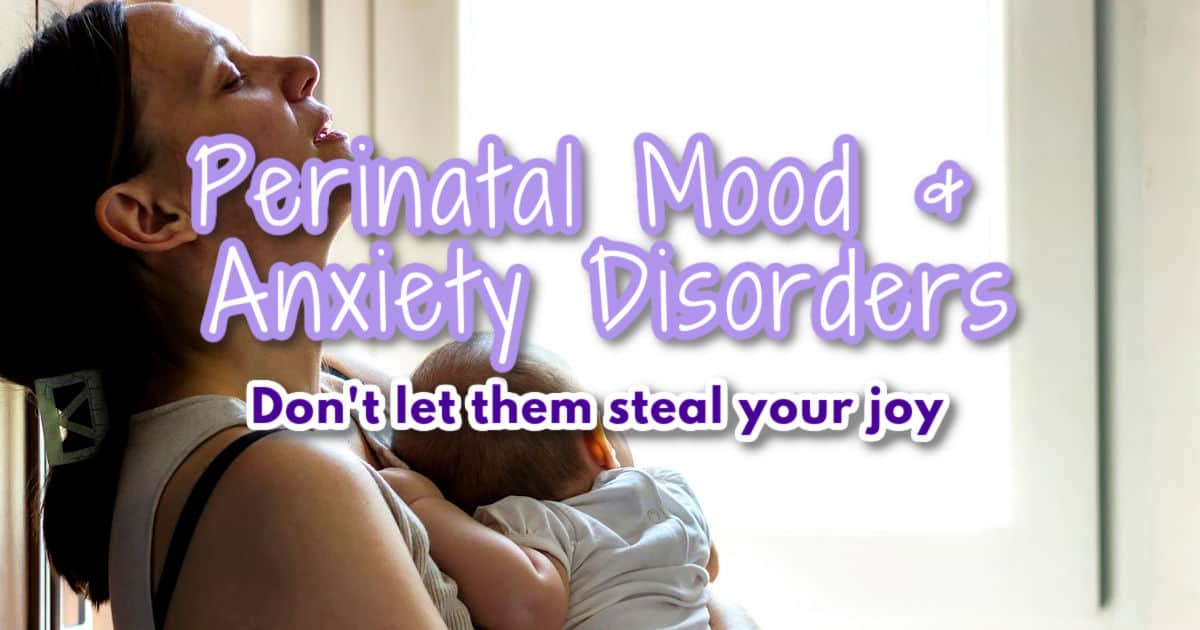
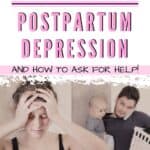
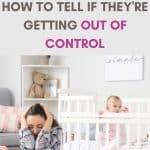

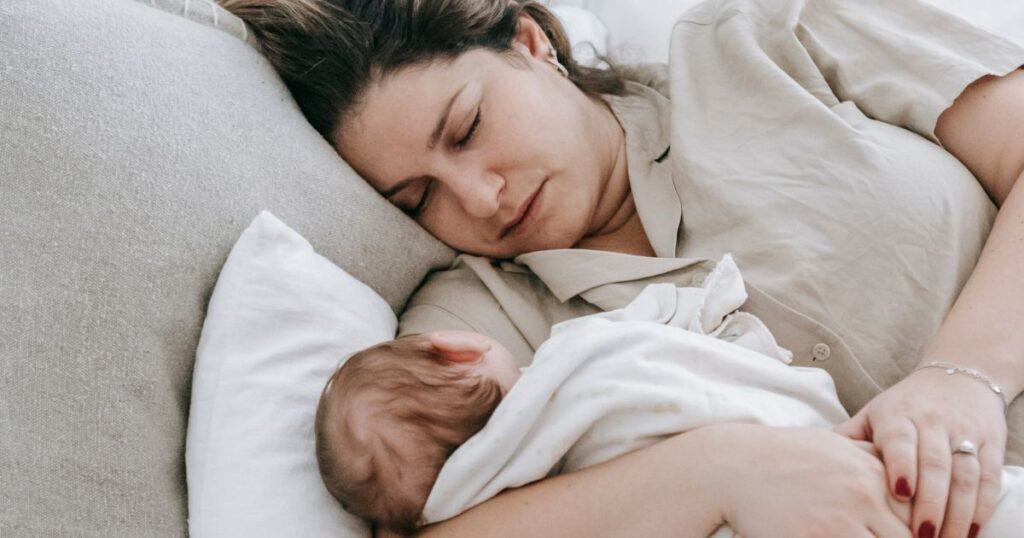
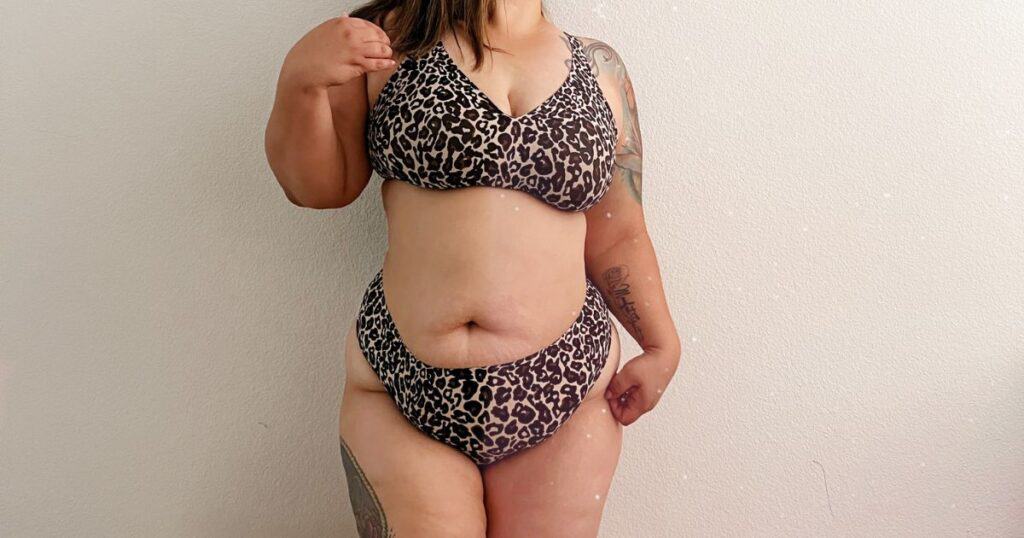

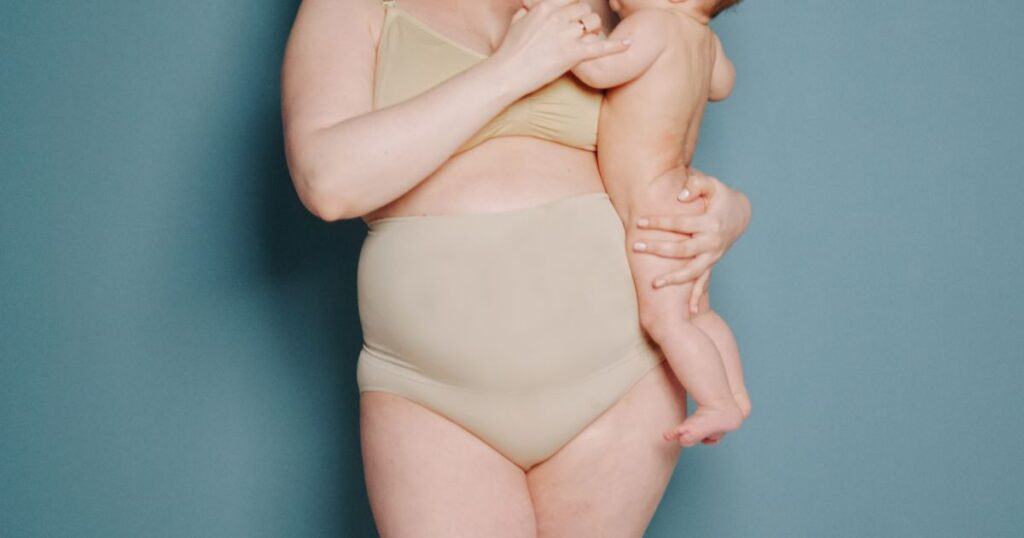
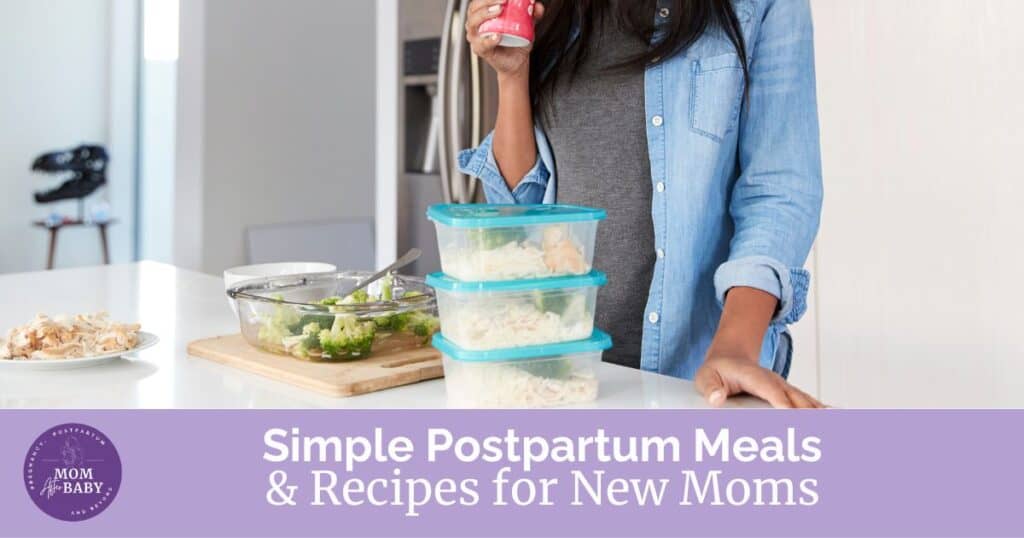
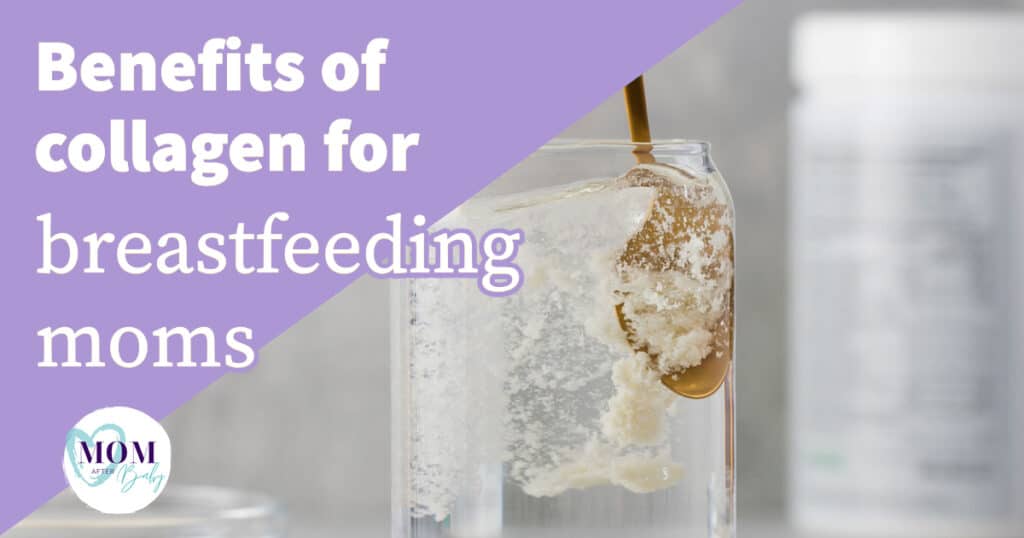
What a great wealth of knowledge! Thank you for sharing!
Mikaela thank you for your sweet comment <3 I hope this post can help so many mamas who may be struggling.